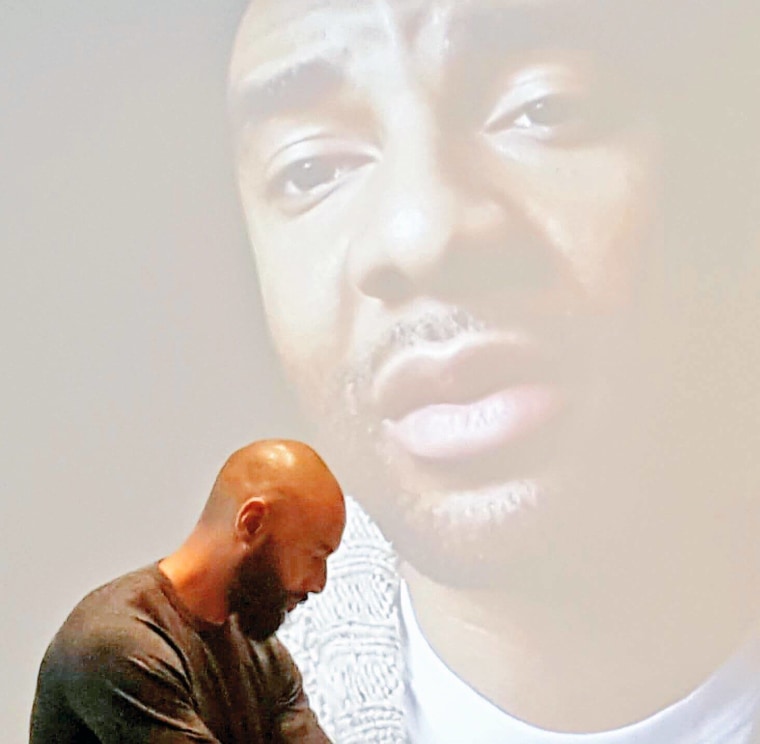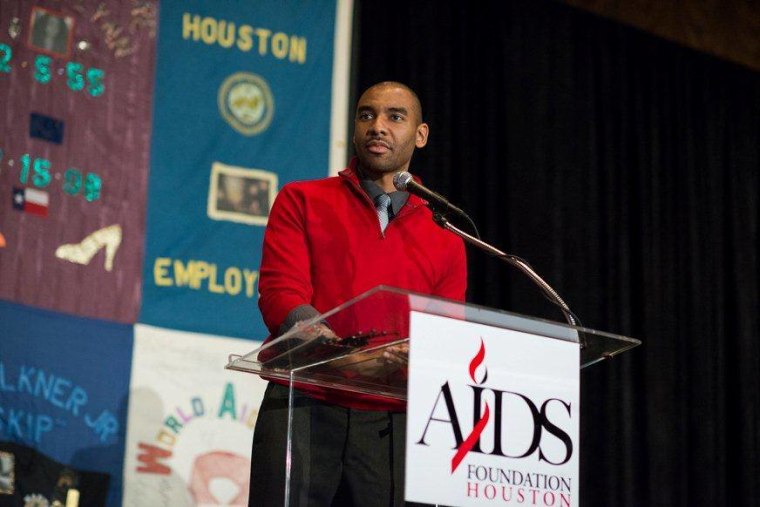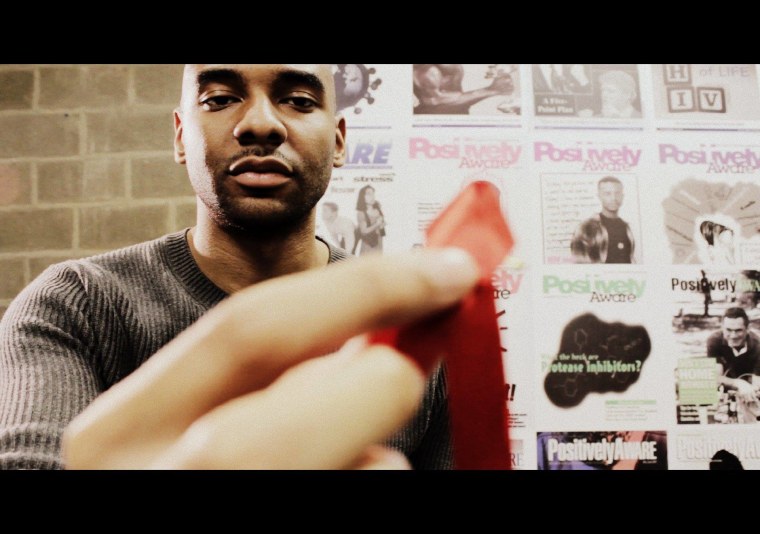Only a month into his new job at an HIV services organization in 2010, Ken Williams sat sobbing at his desk. On a whim, the then 26-year-old decided to give himself the HIV test he was being trained to administer.
The results were positive.
“I remember being at my desk in the office and I lost it,” Williams told NBC Out. “I remember just crying my little eyes out.”
The irony was not lost on the young man who had just been hired to fight rising HIV rates in Chicago.
“Having to reconcile telling other people ‘You should be using condoms’ when I clearly wasn’t being safe enough with my own self felt so hypocritical,” he explained.

A trip to the doctor’s office didn’t ease his anxiety. The doctor told him his T-cell count had dropped dangerously low, and if it dipped any lower, he would have AIDS. It took an excruciating four months for his new health insurance to kick in. Once he started getting his medication, however, he found that living with HIV wasn’t the death sentence he anticipated.
“I’d say the only difference in my life is I go home to take a [anti-HIV] pill,” said Williams, who has been relatively healthy since his diagnosis. He noted that isn’t necessarily the experience of everyone who has the virus.
But one thing did change — Williams found himself trapped in a double closet.
“When I became HIV positive it was difficult for me, because I didn’t want to then have to say ‘I’m HIV positive’ and then have to explain the whole gay thing,” said Williams, who had yet to come out to his family. He told only a few trusted friends about his diagnosis.
“[They] told me ‘You shouldn’t talk about HIV,’” Williams said. “That [was when] I felt most closeted by it, [when] I felt most oppressed by it.”
When a co-worker mentioned to Williams that he also had the virus, Williams started to feel better about his own situation.
“I felt the weight lifted off my shoulders — the burden felt gone,” Williams said. “I realized I needed to take the information to my platform and not only share my HIV status, but teach.”
Williams, who had been posting video diaries on YouTube for several years, wanted to save others from the stigma that had kept him silent. In a video titled “Consider me John Doe,” he came out as HIV-positive to his audience in 2011.
But he had yet to come out to his family.
In 2012, the activist volunteered to be photographed for an ad campaign to help a local AIDS foundation. But the campaign turned out to be much larger than he anticipated. His face appeared around Chicago on buses and billboards along with the words “HIV.” It wasn’t long before he received a phone call from his mother.
“‘Why couldn’t you tell me you had HIV?’” she had asked. When he told her why, she responded that he was her son, she already knew he was gay, and he could tell her anything.
“I remember breaking down sobbing,” Williams said. “After my parents found out, it didn’t matter who else knows."
Since coming out, Williams has used his platform to regularly document his experience as a gay black man with HIV and to spread awareness about the epidemic.
“I personally feel like being black, gay and HIV positive in America, [that] something is trying to kill me every day. But something is trying to kill me every day, and I’m still here,” he said.

According to the Centers for Disease Control, HIV rates increased 22 percent among black gay and bisexual men between 2010 to 2014, and if current rates continue, one in two will be diagnosed in their lifetime. Black gay and bisexual men are a minority within a minority that is already at risk for HIV, Williams noted. Black communities, especially in the rural south, often lack access to standard health care and vital resources like PrEP that can help combat the virus, according to the activist.
For Williams, overcoming the stigma is the first step to fighting it.
“I feel like there is something to this journey that I’m on,” Williams said. “And I feel like being present, being able to live out loud and be confident in the life that I am living will hopefully help teach someone something new either about being gay or being black, or [that] being HIV-positive isn’t something to be ashamed about.”
The 33-year-old currently works for AIDS Foundation Houston in Texas. He recently told his story in January to a jam-packed audience at Creating Change — a national LGBTQ conference — in Philadelphia. The activist said that speaking publicly about his experience was just a way to help himself at first. Now he does it to help others.
“I can love myself again,” Williams said, “and I can help others and teach others to be that roadmap for them to love themselves.”
OutFront is a weekly NBC Out series profiling LGBTQ people who are making a positive difference in the community.

